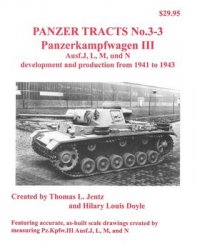MOUNTAIN AIR, LTD.: P. O. Box 27, Mount Ruapehu, New Zealand; Phone 64 (7) 892-2812; Fax 64 (7) 892-2703; Http://www. mountainair. co. nz; Year Founded 1980. James Aviation, Ltd. helicopter division chief pilot Keith McKenzie and his wife Robyn form Commercial Helicopters, Ltd. in 1980 to take over the Taumarunui operation from Auckland-based James. For the next nine years, McKenzie operates a single helicopter on air transport charters and aerial work contracts throughout the central North Island, as well as in other areas of New Zealand requiring rotary-wing lift.
Mountain Air is created in 1989 as Commercial’s fixed-wing division. Scenic lightplane flights are operated over the Tongariro National Park from Chateau, Turangi, and Flat Hills in the Mangaweka area. Scheduled service is inaugurated in April 1997 from Auckland to Turangi and Mount Ruapehu, primarily to meet the needs for skiers to the Ruapehu District ski areas. Thrice-daily roundtrips are initiated in September 1998 from a newly formed Auckland base to Great Barrier Island.
In 1999-2000, Director General McKenzie oversees the work of nine pilots, who fly two each Britten-Norman BN-2 Islanders and Piper PA-23 Aztecs on scheduled flights and one each Cessna 172 and C-206 on charters. Helicopter service is maintained with a Hughes 500D.
MOUNTAIN AIR CARGO (MAC): P. O. Box 488, Denver, North Carolina 28037, United States; Phone (704) 464-8741; Fax (704) 465-5281; Http://www. mtaircargo. com; Code MTN; Year Founded 1975. MAC is founded by David and Walter Clark at Denver, North Carolina, in 1975 to provide charter and contract air cargo services. Most company business comes from contract express flights undertaken by Chairman David and President Walter’s concern on behalf of such giants as Purolator Courier, UPS (United Parcel Service), and Federal Express. Operations continue apace during the remainder of the decade and the fleet grows to include 17 Beech 18s. Maintenance facilities are set up at Little Mountain, North Carolina, Iron Mountain, Michigan, and Parkersburg, West Virginia.
On November 17, 1980, ownership is taken over by Roy Hagerty’s Air Transportation Holding Company (Air T), which also controls the commuter carrier Sunbird Airlines, and placed under control of a new holding company, Atlanta Express Airline Corporation, which is incorporated in Delaware. Sunbird’s eight Beech 99s will now occasionally be leased.
A total of 12.18 million FTKs of freight are operated by Chairman Clark’s freight line in 1981. The workforce in 1982 stands at 101, a decline of 22.3%. Cargo increases 6.9% to 17.64 million pounds.
In late 1983, the company is further subdivided as a new Mountain Air Commuter section is established to offer regularly scheduled passenger flights between Washington, D. C. and Baltimore. Daily roundtrip revenue flights are inaugurated with a Cessna 404 Titan. Meanwhile, the fleet grows to also comprise 8 Beech 99s, 6 de Havilland DHC-6 Twin Otters, 3 Hamilton Westwind IIIs, 10 Beech 18s, and 3 Cessna 402s. Both scheduled and nonscheduled operations continue apace.
Just after landing at Franklin, Pennsylvania, at dawn on November 8, a Beech 18S veers off the runway and is substantially damaged when it goes over an embankment. The pilot is not injured.
On the year, the carrier hauls 18.41-million pounds of freight, a drop of 20.6%.
After several years of freight declines, poundage increases by 10.4% in 1984 to 22.16 million.
The fleet in 1985 includes 1 Cessna 402, 3 Westwind IIIs, 7 Beech 99s, 5 Twin Otters, and 8 Beech 18s.
In March, the first of seven Cessna 208 Caravan Is are received for operation under contract to Federal Express.
While en route from State College, Pennsylvania, to Pittsburgh on the night of October 11, a DHC-6-200 freighter collides with rising terrain at a height of 1,250 ft. near Homer City. The pilot is killed and the Twin Otter is destroyed, with its wreckage scattered over 375 ft.
Cargo climbs again, by 13.2% to 25,097,000 pounds.
The workforce is increased 5.3% in 1986 to 79. The Mountain Air Commuter experiment is deemed a failure and is ended. On the other hand, a wholly owned subsidiary, CSAAir, is formed at Iron Mountain, Michigan, to undertake services in the Midwest.
Freight improves further, gaining by 20.6% to 30,274,000 pounds.
Six new employees are hired in 1987, but cargo drops by 14.8% to 25.79 million pounds.
The fleet of the 85-employee carrier in 1988 includes 15 Twin Otters, 7 Beech 99s, 27 Cessna 208 Caravan Is, 1 Cessna 402, 3 Shorts 330200s, and 1 Fokker F.27.
While on final approach to Charlotte after a ferry flight from Erie, Pennsylvania, on January 19, a DHC-6-200 descends below its glide path, strikes a tree, and hits the ground short of the runway; although the Twin Otter must be written off, its pilot walks away.
Traffic recovers and increases by 76.7% to 45,573,000 pounds.
The payroll is increased by 17.6% in 1989 to 100 and the fleet is reduced to 44 aircraft. Cargo dips 3.3% to 44,081,000 pounds.
The workforce increases 45% in 1990 to 145 and 2 more Friendships are acquired. All independent shareholding in the CSAAir subsidiary is transferred to Air Transportation Holdings Co.
Freight traffic, however, continues to decline, dropping almost a third, 32.9%, to 56,866,000 pounds.
The employee population is cut by 18.6% in 1991 as the fleet is radically altered. Retained are two Beech 99s and three Shorts 330-200s, to which is added a CASA C-212-200 Aviocar. Concentrated efforts are made to purchase additional F.27F freighters. MAC and CSA Air become exclusive servants of Federal Express.
Traffic stops falling and recovers, growing by 12.6% to 64,827,000 pounds.
Operations continue apace in 1992; however, no statistics are reported. In 1993, President William H. Simpson oversees a workforce of 189 and a fleet of 23 Fokker F.27s, 54 Cessna 208 Caravan Is, and 2 Shorts 330s.
A total of 85,655,488 pounds of freight are flown.
The workforce is reduced to 180 in 1994 and cargo increases slightly to 85,766,000 pounds. The company’s 29 planes haul 90.2 million pounds of freight in 1995, a 5.2% upturn.
The employee population stands at 300 in 1996. The fleet now includes 1 CASA C-212 Aviocar, 54 Cessna 208s, 22 Friendships, and 2 Shorts 330s.
Cargo traffic slides 2.3% to 81,249,000 pounds of freight flown.
Early in 1997, the freighter’s parent, Air Transportation Holding, Inc., announces plans to merge with Piedmont Holding Co., which operates six general aviation concerns in North Carolina and Virginia.
A total of 83.6 million pounds of cargo are transported on the year, a 3% increase over 1996.
Flights continue apace in 1998. During the 12 months, freight traffic is level at 83,685,948 pounds.
By the beginning of 1999, airline employment has been increased by 7.1% to 300. The fleet now comprises 45 Cessna 208s, 22 Friendships, and 2 Shorts 330s. These are operated during the remainder of the year, and in 2000, throughout the eastern half of the U. S., Canada, and the Caribbean Islands.




 World History
World History









